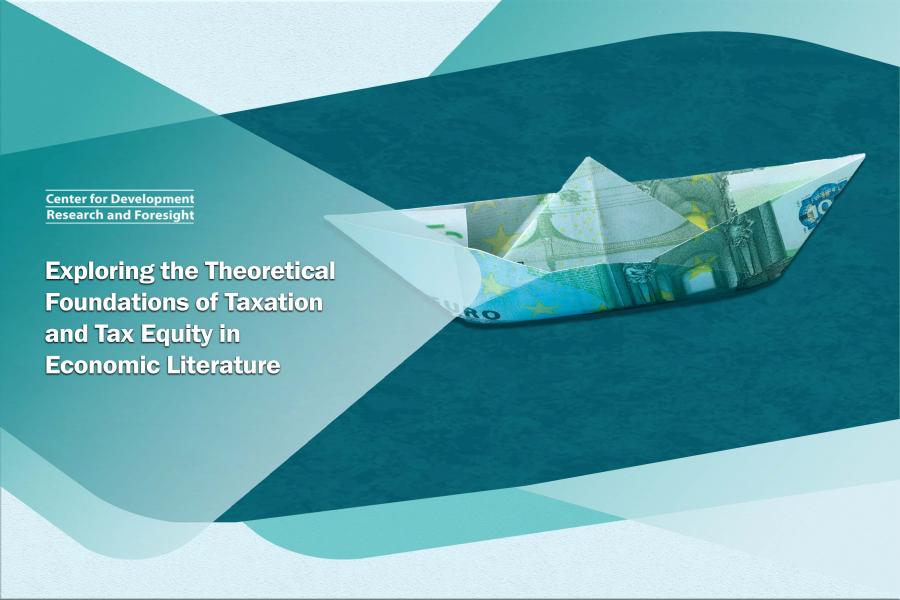
-
بررسی آییننامهها و دستورالعملهای برنامه هفتم پیشرفت
-
بررسی عوامل موثر بر افزایش تصادفات و تلفات جادهای و سوانح رانندگی و دادهکاوی تلفات انسانی
-
سازماندهی و بازآرایی فضایی آموزش عالی کشور
-
به روز رسانی سند ملی آمایش سرزمین
-
انجام مطالعات مناطق آزاد به عنوان نواحی پیشران اقتصادی کشور
-
اصلاح ساختار بودجه و پیاده سازی نظام یکپارچه مدیریت اطلاعات مالی دولت (IFMIS)

This report provides an in-depth exploration of the concepts of taxation and tax equity within the context of economic literature, illuminating the pivotal role of value judgments and assumptions in shaping tax policy and fairness. It underscores the notion that tax equity is predicated on specific assumptions such as the diminishing marginal utility of income and a universal utility function for all taxpayers. Acceptance of these assumptions lays the groundwork for advocating a fair tax system, whether proportional or progressive.
The fundamental assumptions of tax equity, particularly the diminishing marginal utility of income and the concept of a universal utility function for all taxpayers, play a crucial role in various tax systems. These systems are founded on principles such as the ability to pay or equal sacrifice of utility. Notably, when normative policies prioritize the equalization of the marginal utility of income, the outcome is a highly progressive tax structure.
The report delves into the principles of tax fairness, emphasizing the equalization of the marginal utility of income for all taxpayers as the driving force behind a highly progressive taxation system. It elucidates that in such a system, if one group of taxpayers earns more than another, and the government's desired tax revenue can be entirely met from the higher-income group, there is no necessity to collect taxes from the lower-income group. However, if tax revenue goals are not fully achieved when both income groups reach an equal after-tax income level, a uniform tax rate is applied to meet the revenue target.
In practice, tax authorities typically employ lump-sum, proportional, and progressive taxes, each reflecting different facets of tax equity related to equal sacrifice principles.
Based on international comparative statistics, most countries grapple with the issue of tax evasion and tax avoidance, which is estimated to be between 10 and 12 percent of GDP on average. Given that Iran's tax collection is estimated to be between 6 and 7 percent of GDP, and assuming that the ratio of tax evasion and avoidance to tax collected is the same as the global average, it is likely that Iran has almost twice as much tax evasion and avoidance as tax collected.
To bolster the country's economic resilience, the report recommends prioritizing measures to reduce tax evasion and avoidance, highlighting that underground economies inflict the most damage on tax culture and voluntary compliance. Balancing government expenditures and tax revenues is identified as a cornerstone of the resistance economy doctrine, enhancing macroeconomic stability. The report underscores that properly monitoring and addressing tax evasion can potentially lead to maximizing tax revenue, which can subsequently help meet the government's growing expenditure needs.
The primary shortcoming identified in the current tax system is not the number of tax bases and rates, but the prevalence of tax evasion and avoidance. As such, the report emphasizes that the first and most crucial step in tax system reform is the permanent resolution of these issues, emphasizing the government's commitment to identify and address all cases of tax evasion and avoidance. Solving these issues is viewed as a foundational step for garnering the participation of all societal segments in comprehensive tax system reforms and ensuring tax equity at all levels of economic activities.
The optimal allocation of tax revenues to government governance and transparency in government spending are key elements for building trust among taxpayers, encouraging voluntary tax compliance, and ultimately advancing tax equity.



